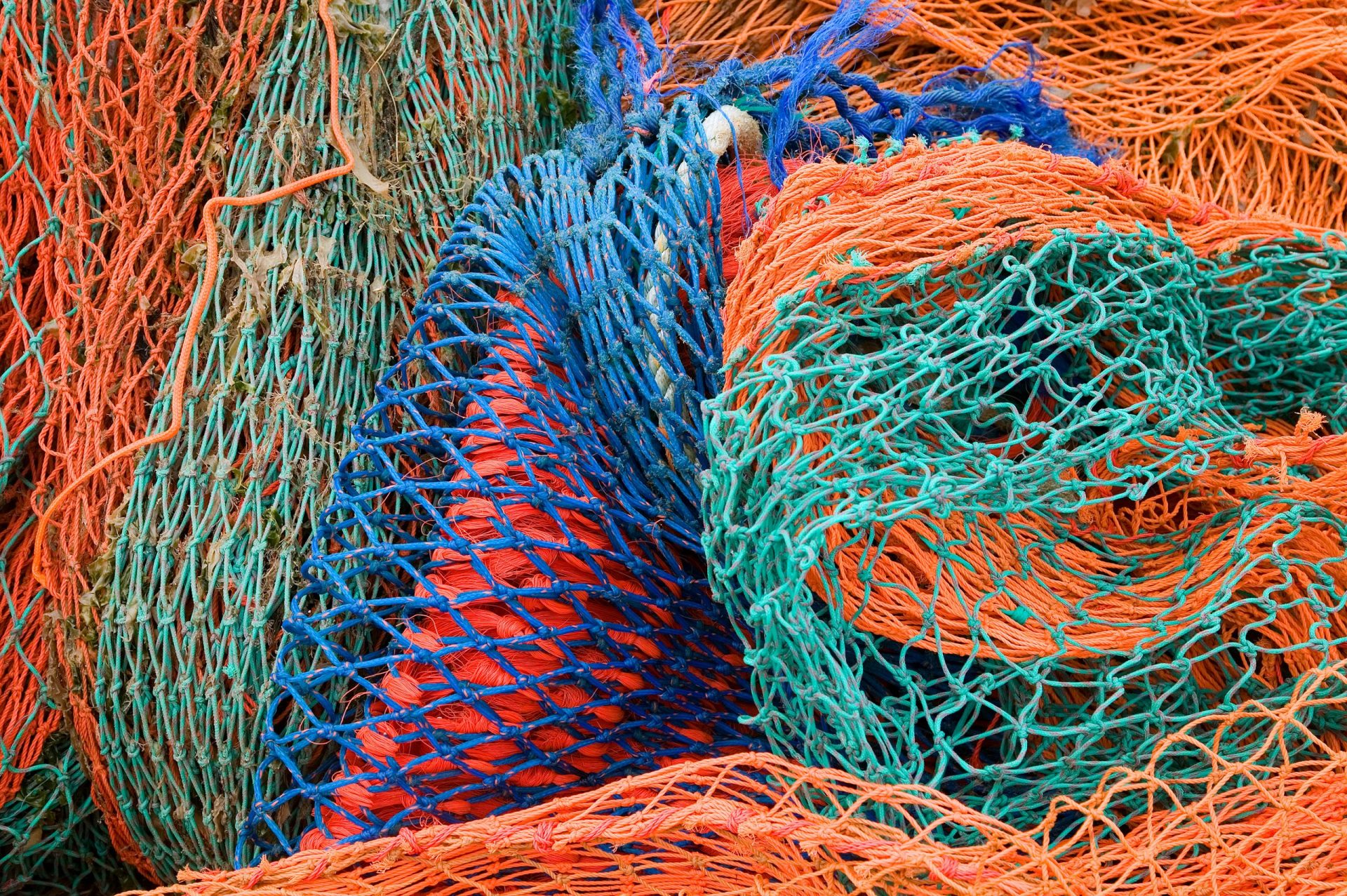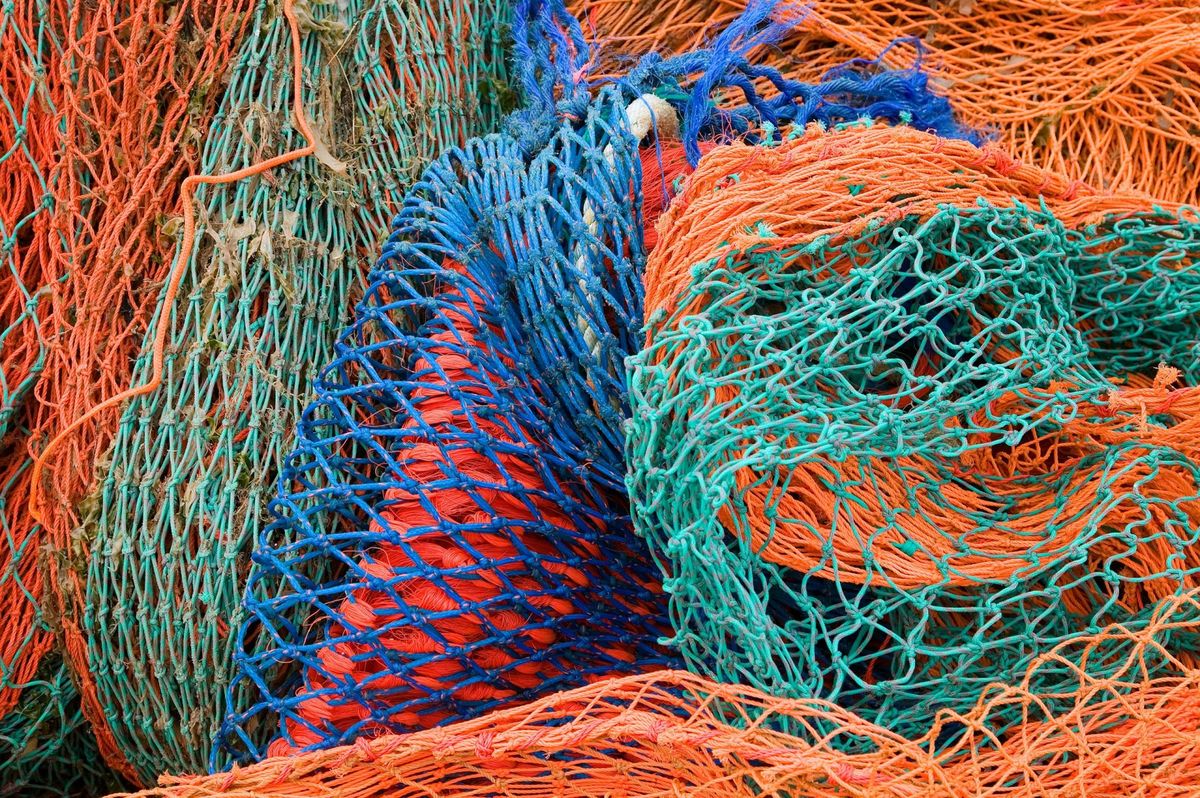
Summary
Plastic waste is filling our oceans. Studies show that our waters will soon be home to more plastic than fish. However, the impact of plastics on the environment goes much further, from widespread use of fossil fuels in their production to toxic leakage and waste incineration that pumps out greenhouse gases.
This online debate was organised in partnership with the European Environment Agency (EEA) to mark the publication of their recent report, ‘Plastic, the circular economy and Europe’s environment — A priority for action’. It brought together participants from government, civil society and business to seek sustainable solutions for plastics.
“Many people focus on plastics as a waste issue, but if you look at the whole production, use and then end of lifecycle of plastics, it is clear we have environmental and climate impacts throughout the lifecycle,” (4:43) explained Hans Bruyninckx, Executive Director of the EEA.
A sea of trouble
By 2050, 20% of the world’s greenhouse gas emissions will come from plastics (6:52), Bruyninckx warned. The EEA report forecast global plastic waste could grow from 6.3bn tonnes in 2015 to 25bn tonnes by 2050. Public authorities are taking action, and industry says it’s getting the message, but the scale and complexity of the problem is so great that there are no easy solutions.
“We are very much aware that we are not going to recycle ourselves out of the problem,” (42:16) acknowledged Sarah Nelen, Deputy Head of Cabinet of Executive Vice-President Frans Timmermans at the European Commission.
- 5:45 Highlights of the EEA report underscore the broad environmental impact of plastics, including “the addition of additives which make them more hazardous and also more difficult to keep in a circular economic logic”. (Bruyninckx)
- 10:32 COVID-19 is making things worse: the pandemic has led to an enormous amount of single-use plastic being used in protective equipment, and by lowering oil prices, it’s undermined the recycling market. (Bruyninckx)
- 29:44 Industry recognises there is a problem and is taking action to change; it asks for time and coherence within the EU single market. “Hans said … the chemical sector will have to go through a very serious transition and I just want to reassure everybody that we know that.” (David Carroll, Director of External Affairs at PlasticsEurope)
- 38:28 EU single-use plastics legislation is more than just a ban on certain products, but has a broader scope with production, reduction and recycling targets. More is to come from the Commission, notably on microplastics. (Nelen)
Circular solutions
Participants called for plastics to be fully integrated in the circular economy. That means going further than recycling, to rethink their use, design, production and disposal. They have to be made less toxic and less susceptible to leakage into the environment. Economic measures are required to incentivise sustainable practices.
“It’s increasingly clear that without extended producer responsibility schemes, the economics of recycling simply don’t stack up. Collecting, sorting, recycling plastics is more expensive than producing virgin plastics and globally that’s an economic gap of $30bn annually,” (21:59) said Sander Defruyt, Lead for the New Plastics Economy Initiative at the Ellen MacArthur Foundation.
- 14:11 Of the €4.4bn allocated for waste management in the 2014-2020 EU budget, only €1bn was used up to the end of 2019. The EU needs to make better use of its existing instruments. “We need to update the legislation at the same time, we have to monitor the existing legislation.” (Maria Spyraki, Member of the European Parliament Committee on Industry, Research and Energy)
- 28:12 Germany has created a ‘prevent waste alliance’ bringing together more than 170 organisations from the public and private sector, academia and civil society; it has also published a toolbox on extended producer responsibility which can help governments finance sustainable waste. (Mira Nagy, GIZ Germany)
- 34:08 There should be a fundamental rethink of the system to move towards a circular economy approach, starting by rethinking what goes on the market in the first place. Upstream solutions have to go beyond recycling and rethink the way products and goods are delivered and reduce the need for single-use products. (Defruyt)
Thinking global
The plastics problem needs a global solution. China and the rest of Asia have overtaken Europe and North America as the biggest plastic producers. Calls are growing for a global agreement to promote sustainable plastics. Although the EU introduced a ban on plastic waste exports this year, fears remain of illegal shipments.
“We are talking about the global market, and we have to also insist on establishing a global level playing field,” (25:19) said Spyraki.
- 21:17 Front-running businesses and governments around the world are taking action but, given the vast scale of the problem, a global treaty on plastics “could really be a great opportunity”. (Defruyt)
- 43:04 Global action is a priority for the EU; the Commission is “absolutely in touch with the new Biden administration” to seek support for action on marine pollution and plastic. (Nelen)
- 51:36 Europe has to look for alliances; it is very important to coordinate action with the US on implementing the Paris Agreement, including on plastics. (Spyraki)
The big ideas
Wrapping up the debate, moderator Tamsin Rose, Senior Fellow at Friends of Europe, asked speakers to choose their one big idea where Europe can help solve the problems with plastics.
- 1:03:31 “It all starts with molecules,” said Bruyninckx, calling for a chemical strategy that’s “safe and sustainable by design”.
- 1:03:55 Spyraki said the priority was raising public awareness to change the consumer model. “It’s all about the people,” she stated.
- 1:04:35 Switching the industry focus from recycling and packaging design to a fundamental rethink of the design of products and business models, topped Defruyt’s wish list. “That’s an enormously unexplored innovation opportunity,” he said.
- 1:05:23 “We have to think more about how to reduce and reuse our materials,” said Nelen, who concurred on the importance of rethinking material design.
About
Plastics impact the environment from the moment they are produced until the moment they are discarded. An increasing number of EU initiatives are in place to address the plastics crisis, but more coordination and scaling up are needed to turn the tide.
Our online debate takes stock of the environmental impact of plastics throughout the lifecycle and explores how to address the plastics problem in the long term. A high-profile group of policymakers and key experts in the field will share their views and address questions from the online audience.
This event is organised in partnership with the European Environment Agency to mark the publication of the ‘Plastic, the circular economy and Europe’s environment — A priority for action’ report. Further information on these subjects may also be found in these briefings on plastics in textiles and circular business models.
Our events include photos, audio and video recording that we might use for promotional purposes. By registering, you give your permission to use your image. Should you have any questions, please contact us.
PHOTO CREDIT: Bigstock/TRImages
Schedule
From the top of Mount Everest to the deepest point of the Mariana Trench: plastics are everywhere. Plastic packaging, single-use plastic products and plastic in textiles, electronics, vehicles and buildings have important uses, but once discarded, they can spread easily and persist in our environment for a long time, posing a danger to other species, nature and ourselves. Negative effects of plastics go beyond littering and leakage. Plastics production and consumption contribute to global warming, cause air and water pollution and can lead to toxicity in humans. 7% of crude oil output is used to make plastics, and this is set to grow rapidly as consumption of plastics is expected to double in the coming two decades.
Plastics use and its negative impacts is posing an increasing headache for policymakers, industry and consumers alike. In addition, COVID-19 is hindering efforts to phase out single-use plastic products and lower oil prices are delaying the uptake of recycled plastics materials.
Questions include:
- What must be done to address the plastics problem in the long term? What can the Circular Economy Action Plan of the EU contribute?
- How can consumers help in making the circular plastics economy a success?
- The current plastic industry is dominated by linear business models. What needs to happen to bring circular business models to scale?
speakers
Hans Bruyninckx
Executive Director of the European Environment Agency
Sander Defruyt
Lead for the New Plastics Economy Initiative at Ellen MacArthur Foundation
Sarah Nelen
Deputy Head of Cabinet of Executive Vice-President of the European Commission Frans Timmermans
Maria Spyraki
Speakers

Executive Director of the European Environment Agency
As Executive Director of the European Environment Agency, Hans Bruyninckx is responsible for providing policymakers with reliable, independent information on a wide array of environmental subjects, from urban air quality to green infrastructure. Before joining the European Environment Agency, Bruyninckx was head of the Research Institute for Work and Society at the Catholic University of Leuven, where he also served as head of the Political Science Department. Over the past 20 years, he has led research on environmental politics, climate change and sustainable development on a multitude of scales, working with local governments, member states, EU institutions and international organisations.

Lead for the New Plastics Economy Initiative at Ellen MacArthur Foundation
At the Ellen MacArthur Foundation, Sander Defruyt leads the New Plastics Economy Initiative, an ambitious global initiative bringing together key stakeholders to rethink and redesign the future of plastics, starting with packaging. Defruyt previously worked at McKinsey & Company, where he was part of the core team responsible for publishing the report, ‘Growth within: a circular economy vision for a competitive Europe’.
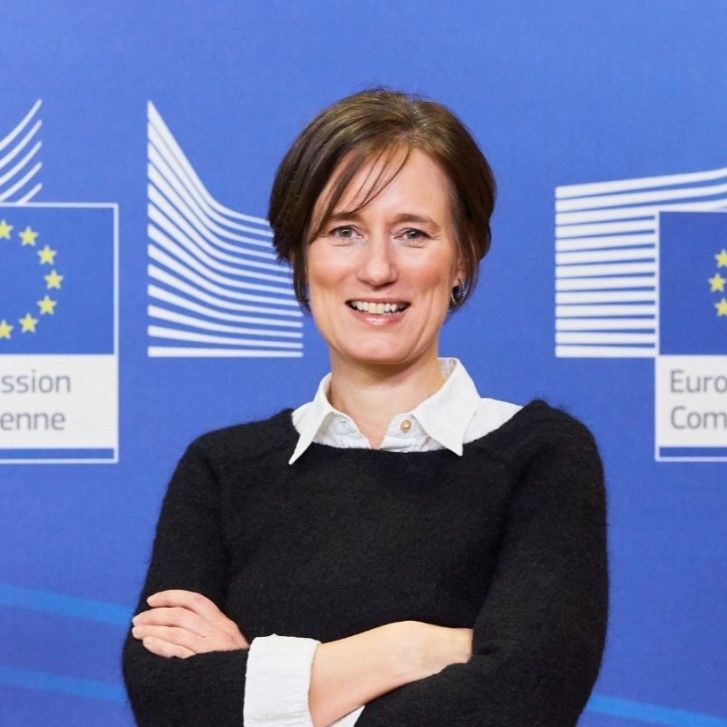
Deputy Head of Cabinet of Executive Vice-President of the European Commission Frans Timmermans
Sarah Nelen has almost 20 years of experience in European policymaking, mainly in the areas of sustainability, justice and home affairs. In her current portfolio, as Deputy Head of Cabinet of Executive Vice-President Frans Timmermans, Nelen is primarily responsible for the coordination of the Green Deal, the EU’s growth strategy to become the world’s first climate-neutral continent by 2050. Prior to joining Timmermans’ Cabinet, she was Head of Unit for waste management and secondary materials, whilst negotiating the EU’s single-use plastic legislation.

Maria Spyraki is an award-winning Greek journalist and politician now serving her second mandate in the European Parliament. She actively works in numerous committees, including Industry, Research, and Energy (ITRE), Regional Development (REGI) and Environment, Public Health and Food Safety (ENVI). Prior to her public service, she worked for 22 years as a journalist in Greece. She drew on this experience during her time in the Athens Press Office of the European Parliament and the office of Environment Commissioner Stavros Dimas. Spyraki is a firm believer in the transformative power of research and innovation to tackle climate change.
Partners
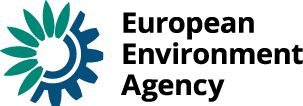
Activities
Climate and Energy Summit 2025
Next event In person & livestreamed

- Area of Expertise
- Climate, Energy & Natural Resources
European Oceans Pact: is maritime transport on board?
Past event In person & livestreamed

- Area of Expertise
- Climate, Energy & Natural Resources
Staying the course: driving sustainability forward in a shifting…
Past event In person & livestreamed

- Area of Expertise
- Climate, Energy & Natural Resources
Navigating risks and enhancing resilience: charting Europe’s energy and…
Past event In person & Livestreamed

- Area of Expertise
- Climate, Energy & Natural Resources
Adaptation without mitigation is nonsense
- Category
- #CriticalThinking
- Author
- By Heïdi Sevestre
Policy Voices | Overcoming Polarisation: can communities shape the green…
- Category
- Podcast
- Area of Expertise
- Climate, Energy & Natural Resources
Energy prices coming down – is Europe on the right track?
- Category
- #CriticalThinking
- Author
- By Andris Piebalgs
Europe’s blackouts call for a NATO-level response
- Category
- #CriticalThinking
- Author
- By Maurizio Geri
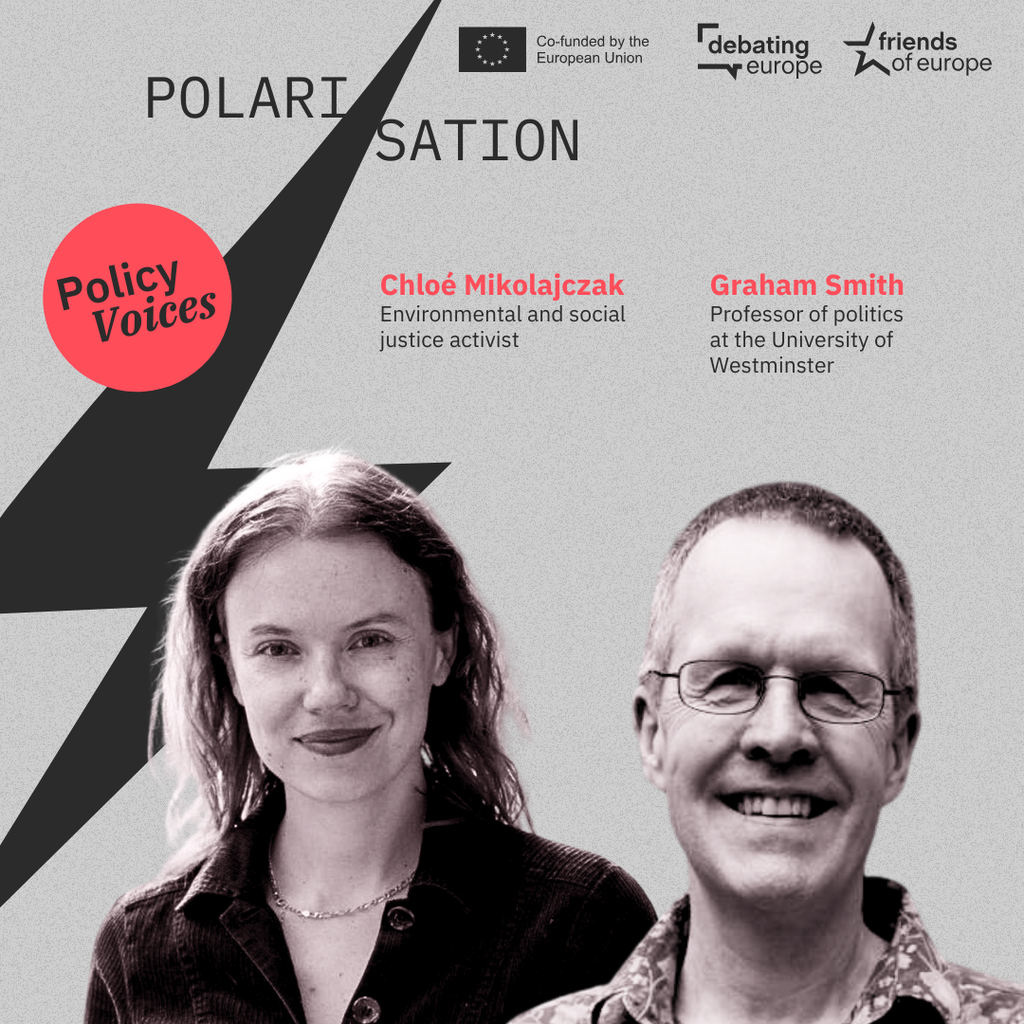
- Area of Expertise
- Climate, Energy & Natural Resources

- Area of Expertise
- Climate, Energy & Natural Resources

- Area of Expertise
- Climate, Energy & Natural Resources

- Area of Expertise
- Climate, Energy & Natural Resources
Continue
the debate on
- Debating Europe
